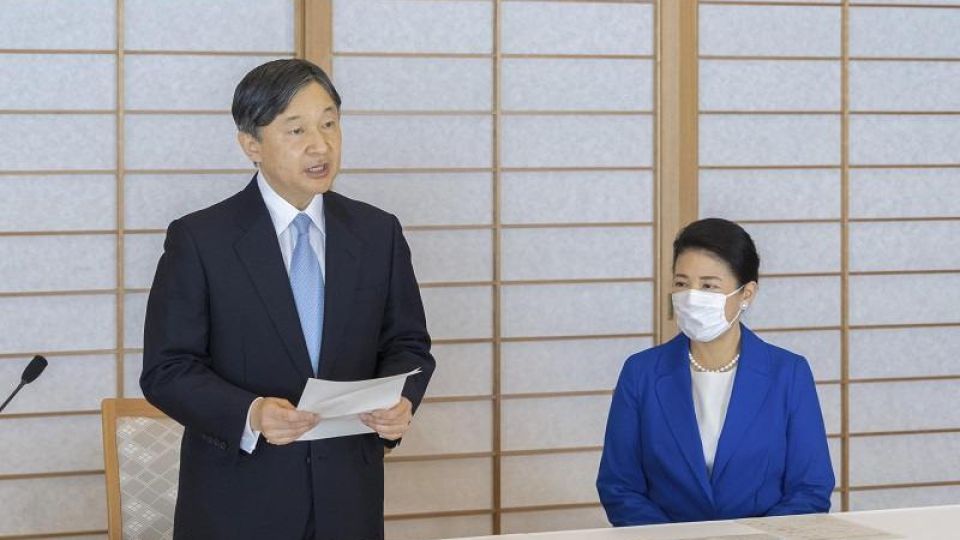May 3, 2022
TOKYO – Sunday marked three years since the Reiwa era began with the Emperor’s accession to the throne on May 1, 2019.
The Emperor’s official activities have been significantly curtailed for more than two years because of the COVID-19 pandemic, but he has explored distinctive ways to send messages to the people using online methods.
“The Emperor and Empress have been thinking of the people thoroughly for the past three years,” an aide close to the Imperial couple said.
The Emperor, 62, and Empress, 58, want to stay familiar with the feelings of the people who face difficulties from the pandemic and natural disasters, the aide said, adding that the Emperor wants to convey his thoughts to them in his own words.
This desire on the part of the Emperor was strongly reflected in his words at the Memorial Ceremony for the War Dead on Aug. 15, 2020. He added his message concerning the hardships from the pandemic to the carefully chosen words that had been delivered by Emperor Showa and the Emperor Emeritus, who showed serious contemplation of the horrors of war.
According to sources, the Emperor consulted with Imperial Household Agency counselors and close aides, among others, about the words to be delivered at the ceremony. Some of them opposed the idea of mentioning the ongoing pandemic at an event to mourn the war dead, but the Emperor made his decision after careful consideration.
“As the symbol of the Reiwa era, the Emperor believes that it is important to be close to the suffering of the people who are living in the present,” the aide said.
On New Year’s Day this year and last, the Emperor addressed the people in a videotaped message as the New Year Greeting events at the Imperial Palace were canceled. He encouraged people to support one another to overcome the pandemic.
The Imperial couple have been unable to visit regional areas for nearly 2½ years amid the pandemic. Instead, they have gone online to participate in events such as the National Tree Planting Festival or meeting with people affected by natural disasters. They have made such online visits to 13 prefectures.
To strike a balance between COVID-19 measures and economic and social activities, the Imperial Household Agency is seeking to resume the Imperial couple’s visits to regional areas. The Emperor and Empress, however, have remained cautious about in-person visits.
In September 2021, the agency recommended the Imperial couple to stay at the Nasu Imperial Villa in Tochigi Prefecture while items were being moved from the Akasaka Imperial Residence to the Imperial Residence. The Emperor, however, said their travel across prefectural borders “might send the wrong message to the people.” So the Emperor and his family brought their bedding to a room of the Imperial Palace not made for lodging and stayed there for two weeks.
If the Imperial couple take trips to regional areas, many people are likely to gather at stations and along roads. Infection control measures, including wearing masks, would help prevent the spread of the virus, but a senior official of the agency said, “The Emperor and Empress will not be convinced unless we show scientific evidence the measures can prevent infection.”
Focus on water issues
Even after his enthronement, the Emperor has actively worked on water issues, on which he has focused since his days as crown prince. He has already delivered five lectures and speeches online to international conferences, projecting a new image of an emperor who addresses global issues.
In his online address to the fourth Asia-Pacific Water Summit held in Kumamoto in April, the Emperor called on people to work together to tackle the pressing challenges of global water sanitation and water disasters related to climate change.
Kenzo Hiroki, a professor at the National Graduate Institute for Policy Studies and an adviser to the Emperor on water studies, said that the Emperor, “as the symbol of Japan, has great impact on world leaders and experts.”

